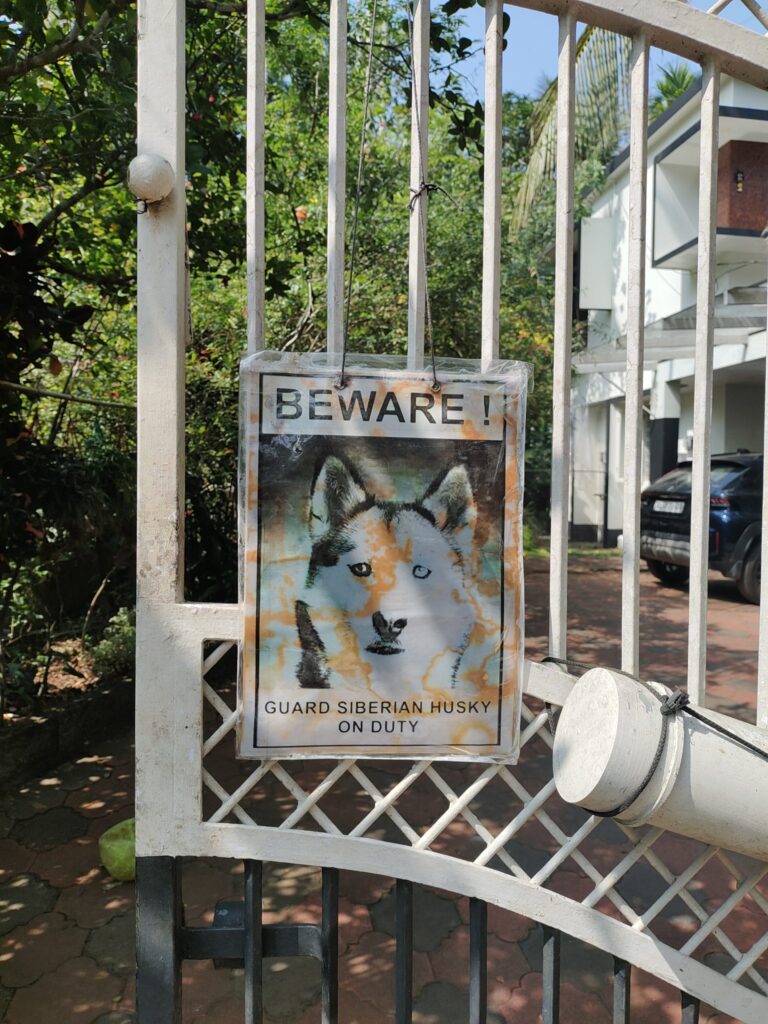The commercial law applicable in the overseas collectivities of Saint-Barthélemy and Saint-Martin has a number of distinctive features that set it apart from the law in mainland France. These particularities, which stem from a specific institutional status and the desire to adapt the law to local economic realities, shape a complex legal environment. For entrepreneurs and companies operating in these territories, mastery of these exceptional rules, often with the assistance of a specialist lawyer, is an essential condition for the legal security of their business and their investment. This article provides a detailed analysis of the judicial organisation, collective procedures and commercial contracts specific to these two Caribbean islands.
Understanding the different regimes of commercial law in the French overseas territories
French law in the overseas collectivities is governed by two distinct constitutional principles: legislative identity for the collectivities under Article 73 of the Constitution (such as Guadeloupe and Martinique) and legislative speciality for those under Article 74, which includes Saint-Barthélemy and Saint-Martin. This second principle means that national laws and regulations only apply there if expressly stated. This approach makes it possible to create tailor-made legal frameworks, theoretically better suited to meeting local economic and social challenges. However, when it comes to commercial law, this singularity remains nuanced. While there are some highly original features to the way in which the courts are organised, after in-depth research, the applicable law remains largely that of ordinary French law. The Commercial Code, for example, largely applies to Saint-Barthélemy and Saint-Martin. The specificity therefore lies less in an entirely separate body of rules than in a series of targeted exclusions and adaptations. For a comparative analysis, you can also consult the specific features of the commercial law in French Polynesiawhich features similar adaptations.
The organisation of the commercial courts in Saint-Barthélemy and Saint-Martin
The main feature of commercial law in the French overseas territories is its judicial organisation. Far from the consular model in metropolitan France, the local authorities of Saint-Barthélemy and Saint-Martin have their own courts with the appropriate composition and jurisdiction. For a more in-depth understanding of the applicable legal system, see our article on the organisation of the commercial courts in the French overseas territories.
Attachment to the mixed commercial court of Basse-Terre
Neither Saint-Barthélemy nor Saint-Martin have their own commercial courts. Until now, commercial disputes relating to these two local authorities have come under the jurisdiction of the Tribunal Mixte de Commerce in Basse-Terre, Guadeloupe. This centralisation, justified by a volume of business deemed insufficient to maintain an autonomous jurisdiction on each island, means that local companies must initiate their proceedings and defend themselves before a geographically distant court, a logistical and financial constraint that should not be overlooked in any litigation strategy, influencing the decision to take legal action on behalf of a customer.
Composition and special features of mixed commercial courts
Mixed commercial courts, which are typical of overseas France, are distinguished by their composition, which is based on a panel of judges. They are presided over by a career magistrate, generally a vice-president of the judicial court, and supplemented by elected judges from the local business community (traders, craftsmen, managers). This structure aims to combine the technical rigour of the professional judge with the pragmatic knowledge of local economic practices and realities of the consular judges, an asset for each case handled. Judges are elected in a similar way to those in mainland France, with the electoral college comprising elected members of the consular chambers and current and former judges of the court. The registry of these courts has also undergone major change, moving from a public system to the offices of commercial court registrars, who are public and ministerial officers.
Substantive and territorial jurisdiction: applying ordinary law appropriately
Despite their specific structure, the jurisdiction of the mixed commercial courts is largely aligned with that of the commercial courts in mainland France. Pursuant to article L. 721-3 of the French Commercial Code, they rule on disputes relating to commitments between merchants, commercial companies and commercial acts between all persons. Their territorial jurisdiction is also defined by common law, with the competent court in principle being that of the defendant's domicile or registered office. Jurisdiction clauses or arbitration clauses remain valid between merchants, provided they are stipulated in a very apparent manner, thus making it possible to derogate from the jurisdiction of the Mixed Commercial Court of Basse-Terre, an essential point when negotiating and drafting contracts.
Specific features of insolvency proceedings in the Northern Isles
The law governing companies in difficulty applied in Saint-Barthélemy and Saint-Martin includes significant exceptions to ordinary law. These exceptions concern both judicial organisation and the influence of European law. For a full understanding of the different options and processes, it is relevant to examine the methods of the opening of collective proceedings in general. In order to gain a better understanding of the formal approaches and players involved in these contexts, it is recommended that you familiarise yourself with the judicial path of collective proceedings. For an overview of the various stages, please refer to our guide on the observation period in collective proceedingswhich lays the foundations for these processes.
The absence of specialised courts for major insolvency proceedings
The "Macron" law of 6 August 2015 established specialised commercial courts in mainland France, with jurisdiction to deal with the insolvency proceedings of large companies exceeding certain employee and turnover thresholds. However, article L. 721-8 of the French Commercial Code, on which this jurisdiction is based, has been expressly declared inapplicable to Saint-Barthélemy and Saint-Martin. This derogation is justified by the structure of the local economic fabric, where very large companies are rare. Relocating proceedings to a specialised court in Paris, for example, would cause considerable practical difficulties and would not be well received in view of the local issues. Consequently, the Mixed Commercial Court of Basse-Terre remains competent for all insolvency proceedings, whatever the size of the company concerned.
The implications of Saint-Barthélemy's exclusion from European insolvency proceedings
Saint-Barthélemy is a major legal exception. Due to its status as an Overseas Country and Territory (OCT), it does not belong to the European Union. This particularity has a direct and fundamental consequence in terms of insolvency law: the legislative and regulatory provisions relating to European insolvency procedures are inapplicable there. In practical terms, this means that the principle of automatic recognition of decisions to open insolvency proceedings by another EU Member State does not apply in Saint-Barthélemy. A local company with creditors or assets in the European Union, or vice versa, does not benefit from the coordination mechanisms provided for by European law. This situation requires increased vigilance for companies with transnational activities and can complicate the conduct of international insolvency proceedings.
Commercial leases and management leases: a legal framework adapted to the French West Indies
The contracts that structure commercial life, such as commercial leases or management leases, are also subject to adaptations, even if these are more specific. They mainly concern administrative formalities and interactions with local authorities.
Adjustments to commercial leases and liquidations
The law on commercial leases has been adapted. One notable adaptation concerns stock liquidation operations, whether at the end of the season, which is common in tourist economies, or liquidations linked to a cessation or change of activity. The prior declaration, which in mainland France is sent to the mayor of the commune, must in Saint-Barthélemy and Saint-Martin be made to the president of the territorial council. This change, which has a direct impact on the relationship between landlord and tenant, reflects the institutional organisation specific to these local authorities, where the territorial council has extensive powers. Monitoring the life of the commercial lease is a security issue for the business. End-of-season liquidation procedures, although specific, are part of a broader framework for dealing with companies in difficulty, for which you can consult our guide on judicial liquidation for companies in difficulty.
The business lease management system
A management lease, or "gérance libre", is a contract under which the owner of a business entrusts its operation to a manager, who administers it at his or her own risk in return for a fee. This mechanism, which is often used prior to the sale or transfer of a business, is particularly useful in preparing for the transfer of a business or to enable an owner to keep his business without running it directly. The regime applicable in Saint-Barthélemy and Saint-Martin is that of ordinary French law, as defined in articles L. 144-1 et seq. of the French Commercial Code. The lessee-manager acquires the status of trader and must register with the Registre du Commerce et des Sociétés (RCS). The lessor is jointly and severally liable for any operating debts incurred by the manager during the six months following publication of the contract. The amount of the rent, or royalty, is a key factor in negotiating this type of contract.
Role of the consular chambers and maintenance of the Trade and Companies Register (RCS)
The administrative organisation of commerce in the Northern Isles also has specific features, particularly with regard to the role of the consular chambers and the keeping of the RCS, which reflect a desire to adapt structures to local needs.
Extending the remit of economic and consular chambers
In Saint-Barthélemy, the Chambre Économique Multi-professionnelle, and in Saint-Martin, the Chambre Consulaire Interprofessionnelle, may be entrusted by the State with extended missions. In particular, the law provides for the possibility of delegating to them the functions normally assigned to chambers of agriculture. This versatility allows for a more flexible and centralised administration, adapted to territories where economic sectors are often interconnected and where the creation of separate bodies for each area of activity would not be appropriate.
Delegation of management of the Trade and Companies Register (RCS)
The Ministry of Justice may delegate the physical maintenance of the RCS to local consular chambers. This measure, provided for by law for situations where the normal operation of the register is compromised, is intended to lighten the burden on court registries. Under this arrangement, the consular chamber is responsible for the physical maintenance of the register, but the clerk of the mixed commercial court retains legal control of the documents and remains competent to rule on any disputes. This mechanism has been the subject of experimentation, particularly under the impetus of the "Macron" law, in order to find the most effective organisation for these territories.
Navigating the legal landscape of Saint-Barthélemy and Saint-Martin requires a detailed knowledge of the derogations that characterise it. Whether in terms of jurisdiction, insolvency rules or commercial formalities, these specific features have direct practical consequences for businesses. For a personalised analysis and made-to-measure legal assistance, our law firm puts its responsiveness and attentiveness at the service of your project. We work with a wide range of clients, from business start-ups to complex litigation. When it comes to selling, buying or defending your interests in a commercial lease case, our expertise in business and property law is a major asset. Our knowledge of the Guadeloupe Bar enables us to offer a local service and to seek the best result for each client. Do not hesitate to contact our expertise in overseas commercial law.
Sources
- French Commercial Code, in particular articles L. 144-1 et seq (Leasing), L. 721-8 (Specialised commercial courts), L. 732-1 et seq (Mixed commercial courts), L. 960-1 et seq (Provisions relating to Saint-Barthélemy and Saint-Martin).
- Code of judicial organisation.
- Constitution of 4 October 1958, in particular articles 73 and 74.




